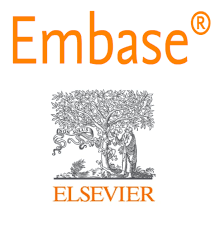A STUDY ON OSTEOPOROSIS IN POSTMENOPAUSAL WOMEN AND ITS RISK FACTORS AND ITS MANAGEMENT MANAGEMENT IN WEST BENGAL: A CROSS-SECTIONAL STUDY
Keywords:
Osteoporosis, postmenopausal women, risk factors, bisphosphonates, calcium, lifestyle, hormone therapy.Abstract
Background: Osteoporosis is a progressive bone disease characterized by decreased bone mass and deterioration of bone tissue, primarily affecting postmenopausal women due to hormonal changes. Methodology: This study investigates the prevalence, associated risk factors, and current treatment strategies in 52 postmenopausal women. Data were collected through structured questionnaires and clinical evaluations. The study identified age, low calcium intake, sedentary lifestyle, and family history as significant risk factors. Management included calcium/vitamin D supplementation, bisphosphonates, lifestyle modifications, and hormone replacement therapy. Early identification and holistic management significantly improve patient outcomes. Result: In this study we got know that osteoporosis is associated with demographic profile of patient. 42.3% patient suffered of osteoporosis is belongs to 55–64 years age group followed by 34.6%belong to 45–54 years ag group. Management: Lifestyle Modifications: Diet: Adequate calcium and vitamin D intake through diet and/or supplements is crucial for bone health. Exercise: Regular weight-bearing and muscle-strengthening exercises are recommended to improve bone density and balance, reducing fracture risk. Smoking Cessation and Alcohol Moderation: Both smoking and excessive alcohol consumption can negatively impact bone health age is important factors for Osteoporosis, increasing age will prone to Osteoporosis. Conclusion: Osteoporosis in postmenopausal women is common and largely preventable. Regular screening, early diagnosis, lifestyle modification, and appropriate pharmacologic interventions are essential. Public awareness and health system integration can drastically reduce the disease burden.
.png)









